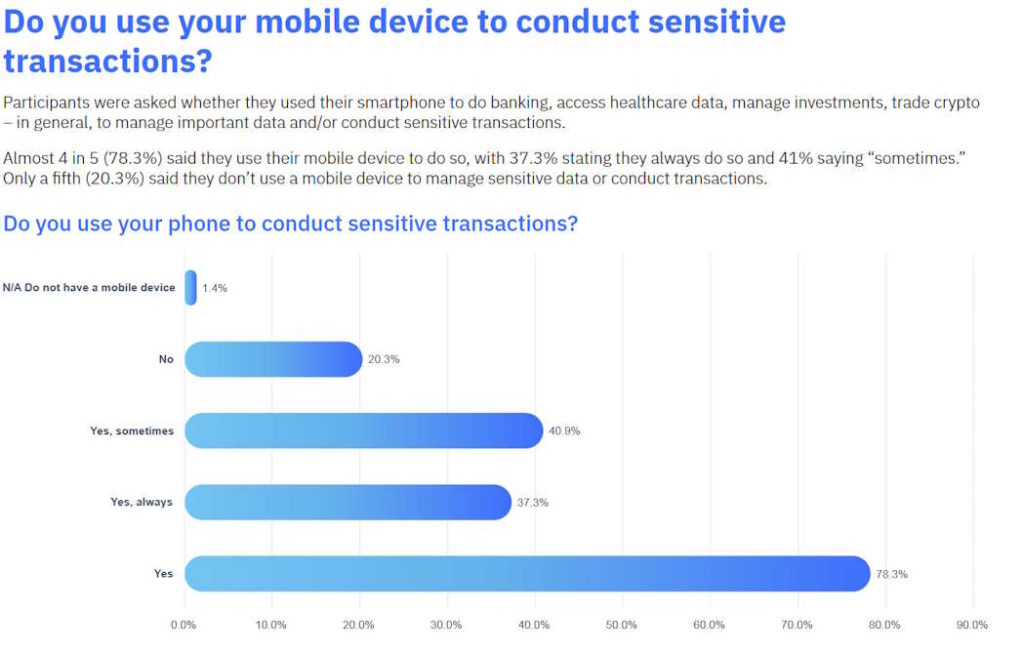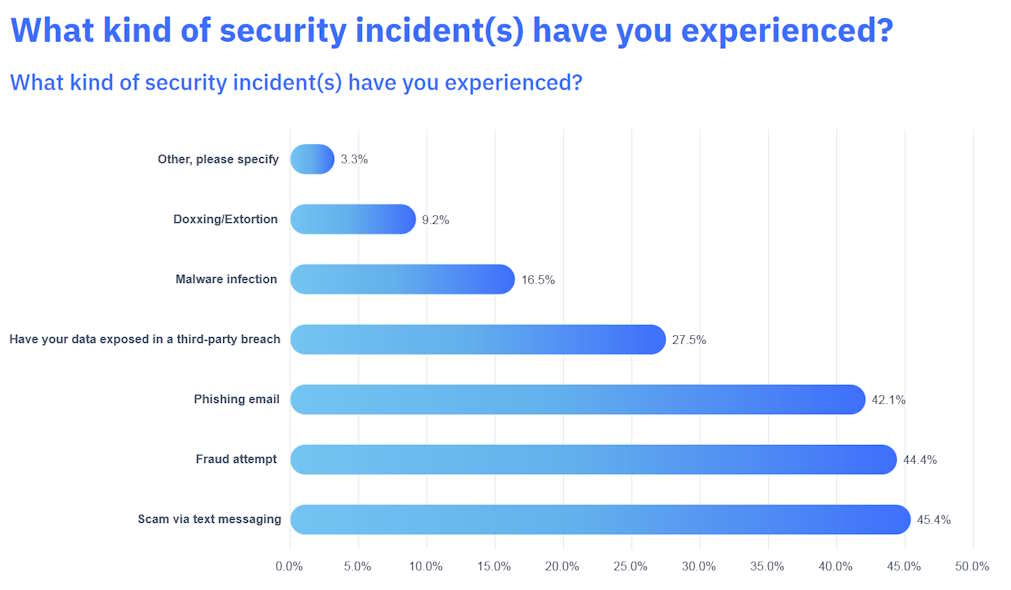Bitdefender, a top cybersecurity firm, just released its 2024 Consumer Cybersecurity Assessment Report. This report lists alarming consumer security behaviors based on a survey of over 7,000 people worldwide.
“This survey highlights the growing importance of cybersecurity awareness as cybercriminals ramp up their attacks on consumers, both in frequency and sophistication,” said Ciprian Istrate, Bitdefender Consumer Solutions Group’s Senior VP of Operations. “The sudden rise of AI adoption by cybercriminals has been a game-changer, posing unprecedented risks to consumers’ digital safety through AI-assisted text scams, fraud attempts, and expertly crafted phishing emails. It’s critical that consumers stay vigilant, understand cybersecurity best practices, and make them a priority.”
Here are some interesting findings from the report:
AI Security and Privacy Concerns:
67% of users worry about the security and privacy implications of artificial intelligence (AI). People in Spain were most concerned at 80%, while only 49% of Italians shared this sentiment. AI’s voracious appetite for personal data to power its machine learning raises serious questions about data storage, usage, and access that current data protection laws can’t fully address.
Mobile Security:
78% of respondents use mobile devices for sensitive transactions like banking, investment accounts, crypto wallets, or healthcare – yet nearly half (45%) don’t use any mobile security solutions. 38% trust that iOS and Android provide sufficient security, while 23% didn’t even know mobile security products exist.

Increase in Security Incidents:
Nearly 1 in 4 people (24%) experienced at least one security incident in the past year. Australia had the highest rate at 37.6%, followed by Spain (27.7%), the U.S. (26.7%), and Germany (26.3%). Those aged 16-24 were over 3 times more likely to be victimized than those 55 and older, indicating younger people struggle to recognize scams.

Text Message Scams:
Surprisingly, SMS/text message scams were the most common threat at 45.4%, edging out fraud attempts (44%), phishing emails (42%), data exposure (27.5%), malware infections (16.4%), and doxxing (9.2%). Malware was highest among 35-44 year olds, suggesting millennials tend to use unauthorized or pirated software.
Password Management Habbits
Over one-third (37%) of respondents wrote passwords down, while 34% reused passwords across accounts. Only 23% used a password manager. Stolen credentials remain a prime target for cybercriminals.
The report offers a look at the current escalating cybersecurity risks facing end users and highlights the need for greater awareness and protection. The full report is available at Bitdefender’s website.













